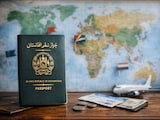Amid an unprecedented fuel crisis, the Sri Lankan Education Ministry declared a holiday week from July 4 for all government and state-approved private schools.
The Sri Lankan Education Minister said that in the next vacation term, the school will cover the syllabus.
Earlier too, on June 18, the Sri Lankan government had announced to shut down all schools for a week.
The Sri Lanka Education Ministry announced that "all government and government-approved private schools in Colombo city limits, as well as schools in other main cities in the other provinces, will be closed during the next week due to prolonged power cuts," Daily Mirror reported.
Sri Lanka Education Ministry Secretary Nihal Ranasinghe asked the schools to conduct online classes and said that the schools at the divisional level will be allowed to conduct classes with less number of students under conditions where transportation difficulties do not affect the students, teachers and principals.
He announced that the Public Utilities Commission of Sri Lanka (PUCSL) has agreed not to have power cuts during 8 am-1 pm to facilitate online teaching on weekdays, the Daily Mirror reported.
Since March this year, Sri Lanka, formerly an upper-middle-income country, has been battling an economic crisis unparalleled since the country gained independence in 1948.
Severe protests have sparked political unrest leading to the resignation of President Gotabaya Rajapaksa's brother Mahinda Rajapaksa from the Prime Minister's post and the appointment of Ranil Wickremesinghe as the country's Prime Minister in May.
The food inflation in May stood at 57.4 per cent, while shortages of key food items, as well as fuel for cooking, transport, and industry, remain widespread, with ongoing daily power outages.
The economy is bracing for a sharp contraction due to the unavailability of basic inputs for production, an 80 per cent depreciation of the currency since March 2022, coupled with a lack of foreign reserves and the country's failure to meet its international debt obligations.
The economic crisis has particularly impacted food security, agriculture, livelihoods, and access to health services. Food production in the last harvest season was 40 - 50 per cent lower than last year, and the current agricultural season is at risk, with seeds, fertilizers, fuel and credit shortages.















